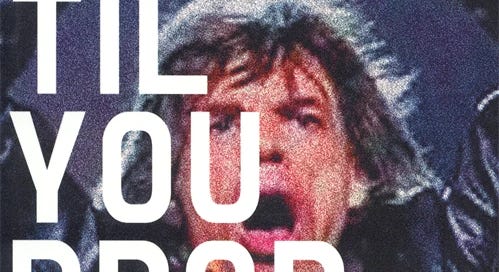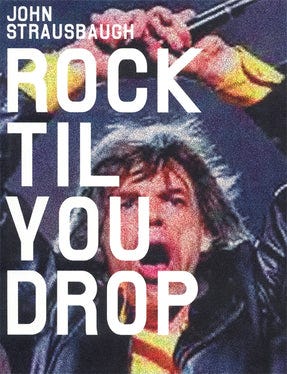Madonna, Mick Jagger, and the Melancholy of "It" Status
John Strausbaugh talked about what I am talking about here over twenty years ago
In recent days I have noticed both Madonna and the Rolling Stones returning to The Discourse in ways I have not seen in quite awhile. Madonna will be undertaking a new tour and there’s a long biography of her hitting the stores. The Stones are putting out their first album of original material in 18 years.
Despite having their peaks in different eras (Madonna started rising to fame around the time the Stones put out their last truly great singles), I see a lot linking Mick Jagger and Madonna together. Many legacy acts have been able to put out new work that adds something new and unexpected that fans rate highly, from Bob Dylan to Dolly Parton. The Stones and Madonna? Not so much.
I am thinking here specifically of Mick Jagger when I make this comparison. Keef’s memoir showed a reflective person able to rise above the bullshit. Mick, even at age 80, is still on his usual bullshit. “Angry,” the first single from Hackney Diamonds, attempts to mine the same well-worn shaft of petulance, and coming from a man his age it sounds not only silly, but pathetic. How sad is it that Jagger could reach this age and still prance about like some devil-may-care stud with a “heart of stone”?
The thing that gets me is that his act has felt tired for decades now. I first tuned into pop music in the early 80s, right when “Start Me Up” hit the airwaves. Soon after MTV redefined cool, and I remember seeing the video for Jagger’s solo “Just Another Night” and thinking just how ridiculous he looked compared to the other artists on the channel. My sister and I would just laugh when that video came on. I also remember his cover duet of “Dancing in the Street” with David Bowie, which has rightfully become an internet meme.
That was 1985, when Madonna dominated the channel and pop culture more broadly. Jagger had been transgressive in the 60s, leering at the camera on Ed Sullivan when performing “Let’s Spend the Night Together.” The Beatles had been more acceptable, the Stones had a threatening edge. I still remember Allan Bloom’s conservative intellectual screed The Closing of the American Mind and his long disquisition on why Mick Jagger was the avatar of everything he hated about modern culture. By the 80s his brand of rebellion no longer stung as hard (Allan Bloom to the contrary), but Madonna’s famous VMAs performance in 1984 signaled something new and more subversive in the context of the Reagan-era cultural reaction.
Madonna took it to the hilt into the 90s, generating massive headlines and endless discourse over the “Justify My Love” video and her Sex book. Like the Stones in the 60s and 70s, she embodied the yearnings in the Zeitgeist for rebellion against the norms of the time. Also like the Stones, she espoused a rebellion that was still socially acceptable enough to make a lot of money. The Stones may have represented the youthquake of the Sixties, but their songs still engaged in the dominant misogyny of the era. Similarly, Madonna may have tweaked religious authorities, but her “Material Girl” grindset fit quite well with the rising neoliberal ethos. (I think the recent articles about Madonna’s biography fail to account for how she was less subversive than people think. Otherwise she would not have been able to sell 150 million records!)
Just as “Just Another Night” signaled that Jagger no longer held the position he once did, “Ray of Light” did that for Madonna. Now don’t get me wrong, “Ray of Light” is a good song, one of my faves of Madonna’s. However, for the first time she was chasing the trend instead of being out in front of it. Madonna had a history of finding underground sounds and fashions and bringing them into the mainstream first, but by the time she put out “Ray of Light” the Chemical Brothers and others had already beaten her to the Electronica punch.
Jagger and Madonna could never escape identification with the eras when they embodied cultural trends. In many ways, I find this sad. If you are lucky enough to live a long life, one of the best parts about it is getting to grow into a new person. I think about Bob Dylan, who has spent well over fifty years distancing himself from his “voice of a generation” tag. A song like “I Contain Multitudes” has more self-reflection than all of the Stones’ songs put together. I also think of Dolly Parton, who has recently overcome her aversion to politics and self-seriousness. I think too of Bruce Springsteen when I saw him on his most recent tour, staring mortality in the face instead of taking the bullshit “forever young” stance that so many others embrace.
We live in a society obsessed with fame, wealth, and status, but I don’t envy those who attain these things. All have a distorting effect on our personalities. There are better and far more meaningful ways to go through life. No matter how famous you get, the grave waits for you, too. It is sad to see people make fools of themselves in public trying to deny this most basic fact of the human condition.



